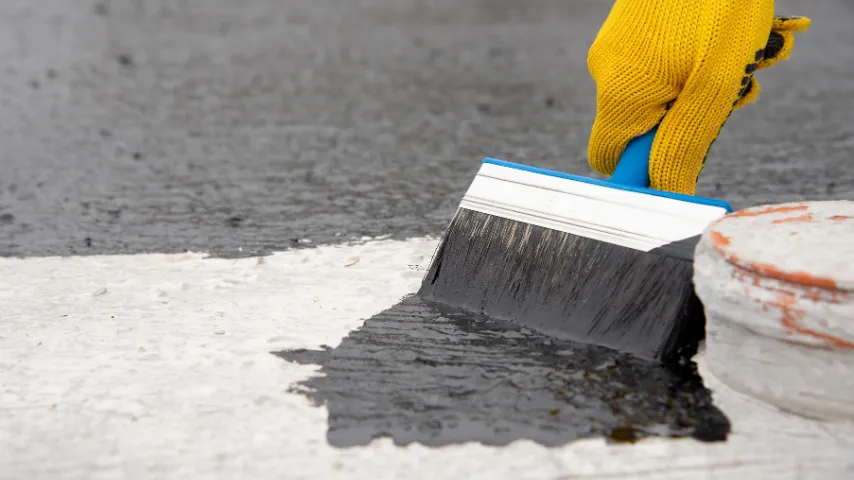This Is the Best Time to Waterproof Your Home

best waterproof service
Introduction
In the ever-changing landscape of homeownership, one thing remains constant: the importance of protecting your investment. One of the most critical aspects of safeguarding your home is ensuring that it is waterproofed effectively. As seasons shift and weather patterns become increasingly unpredictable, the need for a watertight home has never been more crucial. This article will delve into the why, when, and how of waterproofing your home, offering valuable insights and tips to ensure your property remains dry and secure.
Understanding the Significance of Waterproofing
Why is Waterproofing Important?
Water damage can wreak havoc on your home, causing structural issues, health hazards, and significant financial burdens. Mold growth, rotting wood, and compromised foundations are just some of the problems that can arise from inadequate waterproofing. By taking proactive measures, you can avoid these costly and stressful scenarios.
When Should You Consider Waterproofing?
Waterproofing is not a one-size-fits-all solution; its necessity depends on various factors. Here are some instances when you should consider waterproofing:
1. During Construction or Renovation
Building a new home or undertaking substantial renovations is the ideal time to integrate waterproofing measures into your project. This proactive approach can save you time and money in the long run.
2. Seasonal Changes
Your home may be more susceptible to water infiltration as the seasons transition. Spring thaw and heavy rains, in particular, can put your property at risk. Consider waterproofing in advance to prevent water damage during these times.
3. Signs of Water Damage
If you notice water stains, dampness, or mold growth in your home, it clearly indicates that you must promptly address the issue. Ignoring these signs can lead to more extensive and costly damage.
The Waterproofing Process
Types of Waterproofing
There are various methods of waterproofing, each suited to specific situations. Here are some common types:
1. Exterior Waterproofing
This method involves sealing the exterior walls and foundation to prevent water from entering your home. It's highly effective but often requires excavation.
2. Interior Waterproofing
Interior waterproofing focuses on managing water that has already entered your home. It includes solutions like sump pumps, drainage systems, and moisture barriers.
3. Roof Waterproofing
Roof leaks can lead to extensive damage. Roof waterproofing involves applying coatings or membranes to protect against water infiltration.
DIY vs. Professional Waterproofing
Deciding whether to tackle waterproofing as a DIY project or hire professionals depends on the complexity of the task. While minor issues may be suitable for DIY enthusiasts, consulting experts for more extensive projects is advisable to ensure a thorough and long-lasting solution.
Benefits of Timely Waterproofing
Long-Term Savings
Investing in waterproofing may seem like an upfront expense, but it can save you a considerable amount in the long run. Repairing water damage is often far more costly than preventive measures.
Health and Safety
A dry home is a healthy home. Waterproofing helps prevent mold growth, which can be harmful to your health. Additionally, it reduces the risk of accidents caused by structural damage.
Conclusion
In conclusion, waterproofing your home is an essential investment in its longevity in Bangalore and your peace of mind. By understanding the significance of waterproofing, knowing when to take action, and choosing the correct methods, you can protect your home from the damaging effects of water infiltration. Please don't wait until it's too late; the best time to waterproof your home is now.
FAQs
1. How much does waterproofing a home cost?
Waterproofing costs vary depending on factors like the size of your home, the chosen method, and the extent of the work required. It's best to get a professional assessment for an accurate estimate.
2. Can I waterproof my home by myself?
While minor waterproofing tasks can be DIY projects, consulting professionals for comprehensive waterproofing is advisable to ensure its effectiveness.
3. How often should I waterproof my home?
The frequency of waterproofing depends on your location, climate, and home condition. Generally, it's recommended to assess your home's waterproofing needs every few years.
4. Does waterproofing increase home value?
Yes, a well-maintained waterproofing system can enhance your home's value by protecting it from water damage and preserving its structural integrity.
5. What are the signs that my home needs waterproofing?
Signs of water damage, such as water stains, dampness, or mold growth, indicate that your home requires waterproofing attention.















